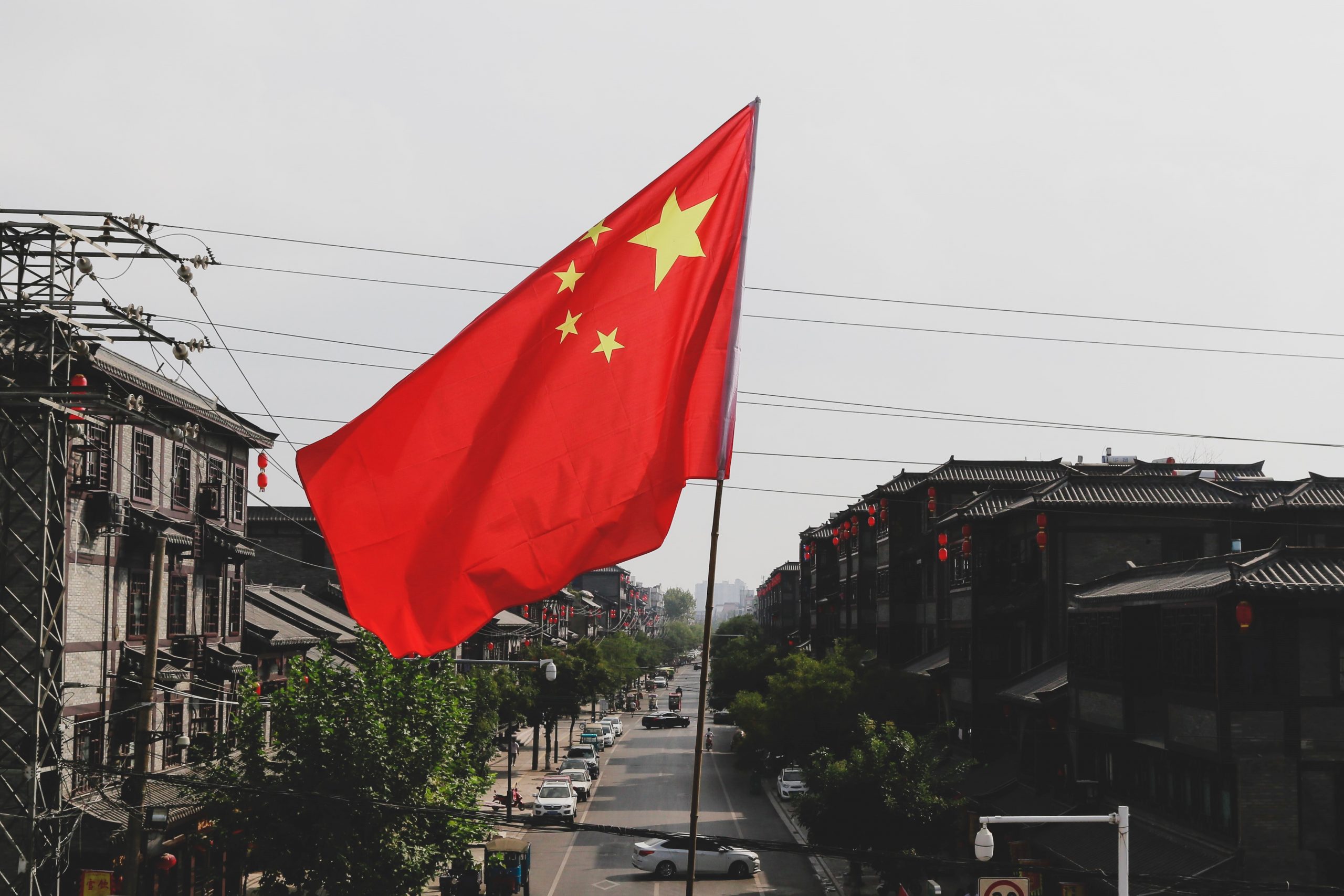China-Singapore DTAA: Tax Treaty Guide with Examples
The Singapore-China Double Taxation Avoidance Agreement (DTAA) is a bilateral treaty that ensures individuals and businesses are not unfairly taxed twice on the same income when earning across both countries. By clarifying each country’s taxing rights, the treaty supports cross-border trade, investment, and professional mobility while reducing the risk of double taxation.
This guide is intended for:
- Individuals who are tax residents of either Singapore or China and earn income in the other country.
- Companies with operations, service arrangements, or investments across both jurisdictions.
If you are considering expanding your business into Singapore as a Chinese entrepreneur or investor, you may also want to review our Singapore Company Registration guide to understand the process of setting up and operating a company in Singapore.
This article covers the following topics of the Singapore-China DTAA:
as well as
China-Singapore DTAA: Purpose & Scope
The purpose of the Singapore-China Double Taxation Avoidance Agreement is to allocate taxing rights fairly between the two countries and ensure that the same income is not taxed twice. It provides certainty for taxpayers, reduces the risk of disputes, and strengthens economic cooperation between the two nations.
Persons Covered
The treaty applies to all persons who are residents of Singapore or China. This includes individuals, companies, and other legal entities that are liable to tax in their country of residence.
Taxes Covered
The DTAA applies to income taxes in both countries:
- In China: Individual Income Tax and Enterprise Income Tax.
- In Singapore: Income Tax.
It also extends to any substantially similar taxes introduced after the agreement came into effect .
Income Types Covered
The agreement covers a wide range of income categories, including:
- Business profits
- Dividends
- Interest
- Royalties
- Capital gains
- Director’s fees
- Independent and dependent personal services
For a deeper understanding of Singapore’s domestic tax framework and how it interacts with treaty benefits, you may also refer to our detailed guides on the Singapore Tax System, Singapore Corporate Tax, and Singapore Personal Tax.
China-Singapore DTAA: Key Terms Defined
Person
Tax Resident
A resident of a Contracting State is any person who, under the laws of that State, is liable to tax.
- For individuals who qualify as residents in both Singapore and China, the treaty applies tie-breaker rules: permanent home, centre of vital interests, habitual abode, nationality, and, if unresolved, mutual agreement between authorities.
For companies that are dual residents, residency is determined by the place of effective management .
Permanent Establishment (PE)
A permanent establishment means a fixed place of business through which the enterprise conducts business in the other State. This typically includes a branch, office, factory, workshop, or mine.
Special Rules for Permanent Establishment (PE):
- A building site, construction, installation, or related supervisory project will be considered a PE only if it continues for more than 6 months.
- The provision of services, including consultancy services, in the other country through employees or personnel will create a PE if such activities last for more than 6 months within any 12-month period.
- Certain activities are specifically excluded from being treated as a PE. These include activities of a preparatory or auxiliary nature, such as storage, display, delivery of goods, purchasing, or collecting information.
Withholding Tax
We Have Helped Thousands Incorporate In Singapore
China–Singapore DTAA: Tax on Business Profits
How business profits are taxed under the treaty
DTAA Rule
According to Article 7 of the Singapore–China DTAA, business profits of an enterprise are taxable only in the country of residence, unless the enterprise carries on business in the other country through a permanent establishment. In that case, only the profits attributable to the PE may be taxed in the other country .
This means:
- If there is no PE, the profits are taxed only in the country of residence.
- If there is a PE, the host country can tax profits attributable to the PE, while the home country grants tax relief to avoid double taxation
Examples (Assume S$500,000 profits)
1.Singapore company earning from China With No PE in China
- Applicable rule: Profits are taxable only in Singapore.
- Tax in China: Nil (no PE).
- Tax in Singapore: Normal corporate tax applies (17% → S$85,000 before any domestic exemptions/reliefs).
- Final outcome: S$85,000 Singapore tax.
2.Singapore company earning from China With PE in China
- Applicable rule: Profits attributable to the PE may be taxed in China.
- Assume full S$500,000 is attributable to the China PE.
- Tax in China: Enterprise Income Tax (25% → S$125,000).
- Tax in Singapore: Also taxable, but foreign tax credit allowed for Chinese tax paid.
- Final outcome: Effective tax = higher of the two (China’s 25%). No additional Singapore tax payable if full credit is given.
3.Chinese company earning from Singapore With No PE in Singapore
- Applicable rule: Profits taxable only in China.
- Tax in Singapore: Nil (no PE).
- Tax in China: Enterprise Income Tax (25% → S$125,000).
- Final outcome: S$125,000 Chinese tax.
4.Chinese company earning from Singapore With PE in Singapore
- Applicable rule: Profits attributable to the Singapore PE may be taxed in Singapore.
- Assume full S$500,000 is attributable to the Singapore PE.
- Tax in Singapore: Corporate Income Tax (17% → S$85,000).
- Tax in China: Also taxable, but Chinese law allows foreign tax credit for Singapore tax paid.
- Final outcome: Effective tax = higher of the two (China’s 25%). Singapore tax (17%) is credited, leaving 8% payable in China (S$40,000).
- Net effect: Total tax = S$125,000.
China–Singapore DTAA: Tax on Dividends
How dividends are taxed under the treaty
DTAA Rule
Under Article 10 of the Singapore–China DTAA, dividends paid by a company resident in one country to a resident of the other may be taxed in both countries. However, the source country’s withholding tax is capped as follows:
- 5% of the gross dividend if the beneficial owner is a company holding at least 25% of the capital of the paying company.
- 10% of the gross dividend in all other cases.
In Singapore, dividends are exempt from withholding tax under the one-tier corporate tax system, so no tax is levied when Singapore companies pay dividends. The rules apply mainly to dividends flowing from China to Singapore.
Examples (Assume S$500,000 dividends)
1.Dividends paid by a Singapore company to a Chinese resident
- Singapore does not levy withholding tax on dividends.
- Tax in Singapore: Nil.
- Tax in China: Subject to Enterprise or Individual Income Tax under Chinese domestic law.
- Final outcome: Final outcome: Liability arises only in China, according to Chinese domestic law.
2.Dividends paid by a Chinese company to a Singapore resident
- Tax in China (withholding):
- If Singapore shareholder is a company with ≥25% holding: 5% of S$500,000 = S$25,000.
- Otherwise (individual or smaller shareholder): 10% of S$500,000 = S$50,000.
- Tax in Singapore: Dividends are included in taxable income, but the Singapore resident can claim a foreign tax credit for the Chinese tax withheld.
- Final outcome: Singapore resident bears Chinese withholding tax (5% or 10%), but avoids double taxation through credit relief.
China–Singapore DTAA: Tax on Capital Gains
How capital gains are taxed under the treaty
DTAA Rule
Under Article 13 of the Singapore–China DTAA, taxation of capital gains depends on the type of asset:
- Immovable property: Gains from property located in the other country may be taxed there.
- Business property of a PE or fixed base: Gains may be taxed where the PE or base is situated.
- Ships and aircraft: Gains from ships, aircraft, or related movable property in international traffic are taxable only in the country of residence.
- Shares:
- If shares derive >50% of their value from immovable property in the other country, that country may tax the gain.
- If the seller owned ≥25% of the shares in a company during the 12 months before disposal, the company’s country of residence may tax.
- Other property: Taxable only in the seller’s country of residence.
Examples (S$500,000 gain)
1.Singapore resident sells Chinese shares
- If the Singapore seller is a company:
- China taxes under Enterprise Income Tax (EIT):
- 10% withholding (S$50,000) if no PE.
- 25% (S$125,000) if attributable to a PE.
- Singapore does not tax capital gains, so no further liability.
- China taxes under Enterprise Income Tax (EIT):
- If the Singapore seller is an individual:
- China taxes under Individual Income Tax (IIT): 20% flat rate = S$100,000.
- Singapore does not tax capital gains.
2.Chinese resident sells Singapore shares
- Singapore generally does not tax capital gains, even though the DTAA gives it taxing rights over property-rich or substantial shareholdings.
- In practice:
- Tax in Singapore: Nil.
- Tax in China: Worldwide gains taxed under IIT (20%) for individuals or EIT (25%/10%) for companies, with no Singapore credit needed since Singapore imposes no tax.
China–Singapore DTAA: Tax on Interest Income
How interest income is taxed under the treaty
DTAA Rule
Under Article 11 of the Singapore–China DTAA:
- Interest arising in one country and paid to a resident of the other may be taxed in the recipient’s country of residence.
- The source country may also tax it, but the withholding tax is capped at:
- 7% of the gross interest if the beneficial owner is a bank or financial institution.
- 10% of the gross interest in all other cases.
- Certain interest payments are fully exempt, including those paid to the governments, central banks, sovereign wealth funds, or specified government-owned institutions (e.g., Monetary Authority of Singapore, China Development Bank) .
- If the debt claim is effectively connected with a PE or fixed base, the income is taxed under Article 7 (Business Profits) or Article 14 (Independent Services).
Examples (Assume S$100,000 interest income)
1.Interest paid by a Singapore company to a Chinese resident
- Singapore withholding tax:
- If paid to a Chinese bank: 7% → S$7,000.
- Otherwise: 10% → S$10,000.
- China: Recipient includes interest in taxable income but receives a credit for Singapore tax paid.
- Final outcome: Effective tax equals China’s domestic rate, with Singapore tax credited.
2.Interest paid by a Chinese company to a Singapore resident
- China withholding tax:
- If paid to a Singapore bank or financial institution: 7% → S$7,000.
- Otherwise: 10% → S$10,000.
- Singapore: Interest is taxable at 17%, but a foreign tax credit is granted for Chinese withholding tax.
- Final outcome: Effective tax equals Singapore’s corporate rate (S$17,000), with the Chinese withholding tax reducing the net payable in Singapore.
China–Singapore DTAA: Tax on Royalties
How royalty income is taxed under the treaty
DTAA Rule
Under Article 12 of the Singapore–China DTAA:
- Royalties arising in one country and paid to a resident of the other may be taxed in the recipient’s country of residence.
- The source country may also impose tax, but the withholding rate is capped at 10% of the gross amount.
- For royalties relating to the use of industrial, commercial, or scientific equipment, the taxable base is reduced: only 60% of the gross amount is subject to the 10% limit (effective maximum rate = 6% of gross payment) .
- If the royalty is effectively connected with a permanent establishment or fixed base in the source country, then taxation follows Article 7 (Business Profits) or Article 14 (Independent Services).
Examples (Assume S$100,000 royalty payment)
1.Royalty paid by a Singapore company to a Chinese resident
- Singapore withholding tax:
- Standard royalty: 10% of S$100,000 = S$10,000.
- For industrial/commercial equipment use: 10% × 60% of S$100,000 = S$6,000.
- China: Recipient includes the royalty income in taxable income but receives a foreign tax credit for Singapore tax withheld.
- Final outcome: Effective tax equals China’s domestic rate, with Singapore WHT creditable.
2.Royalty paid by a Chinese company to a Singapore resident
- China withholding tax:
- Standard royalty: 10% of S$100,000 = S$10,000.
- For industrial/commercial equipment use: effective 6% = S$6,000.
- Singapore: Royalty income is taxable at 17%, but a credit is granted for Chinese withholding tax.
- Final outcome: Effective tax equals Singapore’s corporate rate (S$17,000), with the Chinese withholding tax offsetting part of the liability.
China–Singapore DTAA: Tax on Personal Services
How Independent Services are taxed under the treaty
DTAA Rule
Under Article 14 of the Singapore–China DTAA, income from professional or other independent services earned by an individual resident of one country is taxable only in the country of residence, unless one of the following applies:
- The individual has a fixed base regularly available in the other country; in that case, only the portion attributable to the fixed base may be taxed there.
- The individual’s stay in the other country is 183 days or more within any 12-month period; in that case, the income derived from services performed there may be taxed in that country.
“Professional services” include activities such as those performed by lawyers, engineers, architects, doctors, accountants, teachers, and other independent specialists.
Examples (Assume S$100,000 service fee)
1.Services by a Singapore resident to a Chinese company
- If the Singapore consultant does not have a fixed base in China and stays less than 183 days:
- Tax in China: Nil.
- Tax in Singapore: Fully taxable (up to 24% individual rates).
- If the consultant maintains a fixed base in China or stays ≥183 days:
- Tax in China: China may tax the portion attributable to the fixed base or workdays.
Tax in Singapore: Worldwide income taxable, but credit allowed for Chinese tax paid.
2.Services by a Chinese resident to a Singapore company
- If the Chinese consultant does not have a fixed base in Singapore and stays less than 183 days:
- Tax in Singapore: Nil.
- Tax in China: Fully taxable under China’s personal income tax.
- If the consultant maintains a fixed base in Singapore or stays ≥183 days:
- Tax in Singapore: Singapore taxes the portion attributable to the fixed base or workdays (progressive individual rates up to 24%).
- Tax in China: Worldwide income taxable, but credit allowed for Singapore tax paid.
How Dependent Services are taxed under the treaty
DTAA Rule
Under Article 15 of the Singapore–China DTAA, salaries, wages, and other similar remuneration earned by an employee resident in one country are taxable only in the country of residence, unless the employment is exercised in the other country. If work is performed in the other country, that country may also tax the income.
Exception – 183-day rule: The employment income remains taxable only in the residence country if:
- The employee is present in the other country for less than 183 days in any 12-month period, and
- The salary is paid by an employer who is not a resident of the other country, and
- The remuneration is not borne by a permanent establishment or fixed base of the employer in that other country.
Income from employment aboard a ship or aircraft in international traffic is taxable only in the country of residence of the operator.
Examples (Assume S$100,000 annual salary)
1.Singapore resident employed in China
- If the employee works in China for less than 183 days, is paid by a Singapore employer, and the cost is not borne by a China PE:
- Tax in China: Nil.
- Tax in Singapore: Full S$100,000 taxed under Singapore personal income tax (up to 24%).
- If the employee stays ≥183 days or the salary is paid by/charged to a China entity or PE:
- Tax in China: Taxable under China’s individual income tax (progressive, up to 45%).
- Tax in Singapore: Worldwide income taxable, but a foreign tax credit is allowed.
2. Chinese resident employed in Singapore
- If the employee works in Singapore for less than 183 days, is paid by a Chinese employer, and the cost is not borne by a Singapore PE:
- Tax in Singapore: Nil.
- Tax in China: Full S$100,000 taxed under China’s personal income tax system.
- If the employee stays ≥183 days or the salary is paid by/charged to a Singapore entity or PE:
- Tax in Singapore: Taxable under Singapore personal income tax (progressive rates up to 24%).
- Tax in China: Worldwide income taxable, with credit allowed for Singapore tax.
China–Singapore DTAA: Tax on Director Fee
How director fee is taxed under the treaty
DTAA Rule
Under Article 16 of the Singapore–China DTAA, director’s fees and other similar payments received by a resident of one country in their capacity as a member of the board of directors of a company in the other country may be taxed in the country where the company is resident .
This is different from employment income: even if the director is not physically present in the company’s country of residence, the director’s fees are still taxable there.
Examples (Assume S$100,000 director’s fee)
1.Fee paid by a Singapore company to a Chinese resident director
- Singapore: Has primary taxing rights. Non-resident director’s fees are subject to a final withholding tax of 24% → S$24,000.
- China: The Chinese resident must also declare the income under China’s Individual Income Tax system, but receives a foreign tax credit for the S$24,000 already paid in Singapore.
- Final outcome: Effective tax equals China’s domestic rate (up to 45%), with Singapore tax credited.
2. Fee paid by a Chinese company to a Singapore resident director
- China: Has primary taxing rights. Director’s fees are taxed in China under its individual income tax rules (progressive rates, up to 45%). Assume 25% effective → S$25,000.
- Singapore: Director includes this income in their personal tax return, but can claim a foreign tax credit for Chinese tax paid.
- Final outcome: Effective tax equals Singapore’s personal tax rate (up to 24%), with Chinese tax credited.
Start a Singapore Company
High-quality service — no shortcuts, no surprises
Frequently Asked Questions about Singapore-China DTAA
Related Articles
Is Singapore the Right Place to Incorporate?
How to Register a New Company in Singapore
Singapore's Tax System and Types of Taxes








